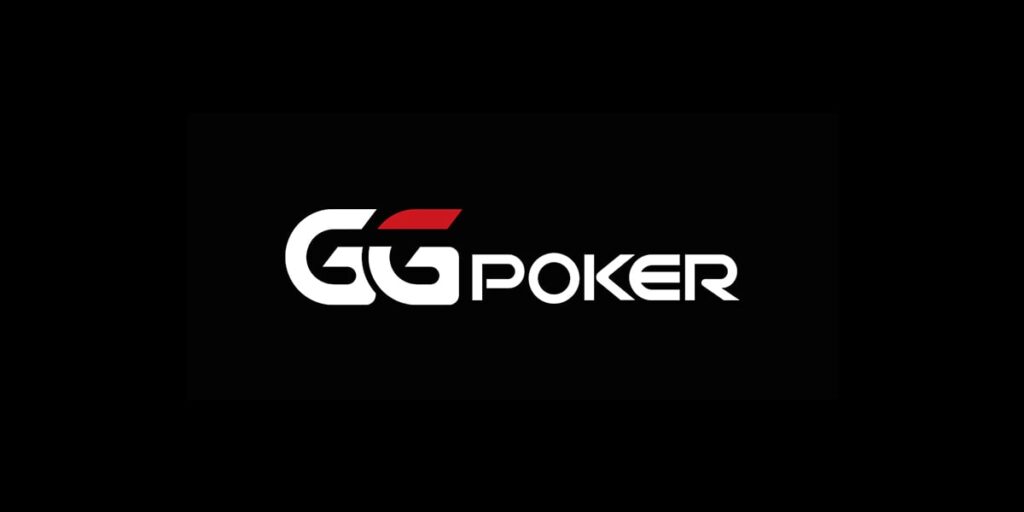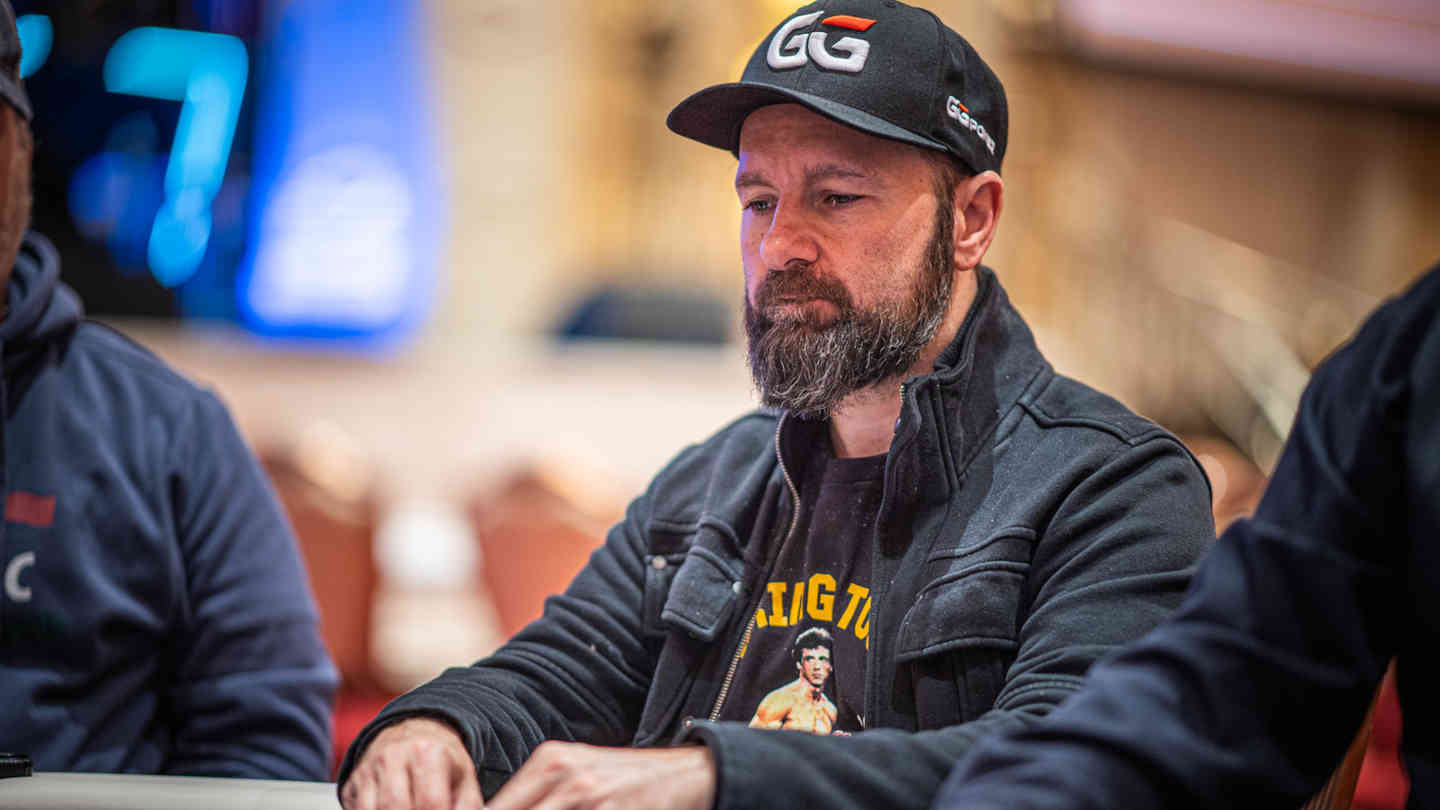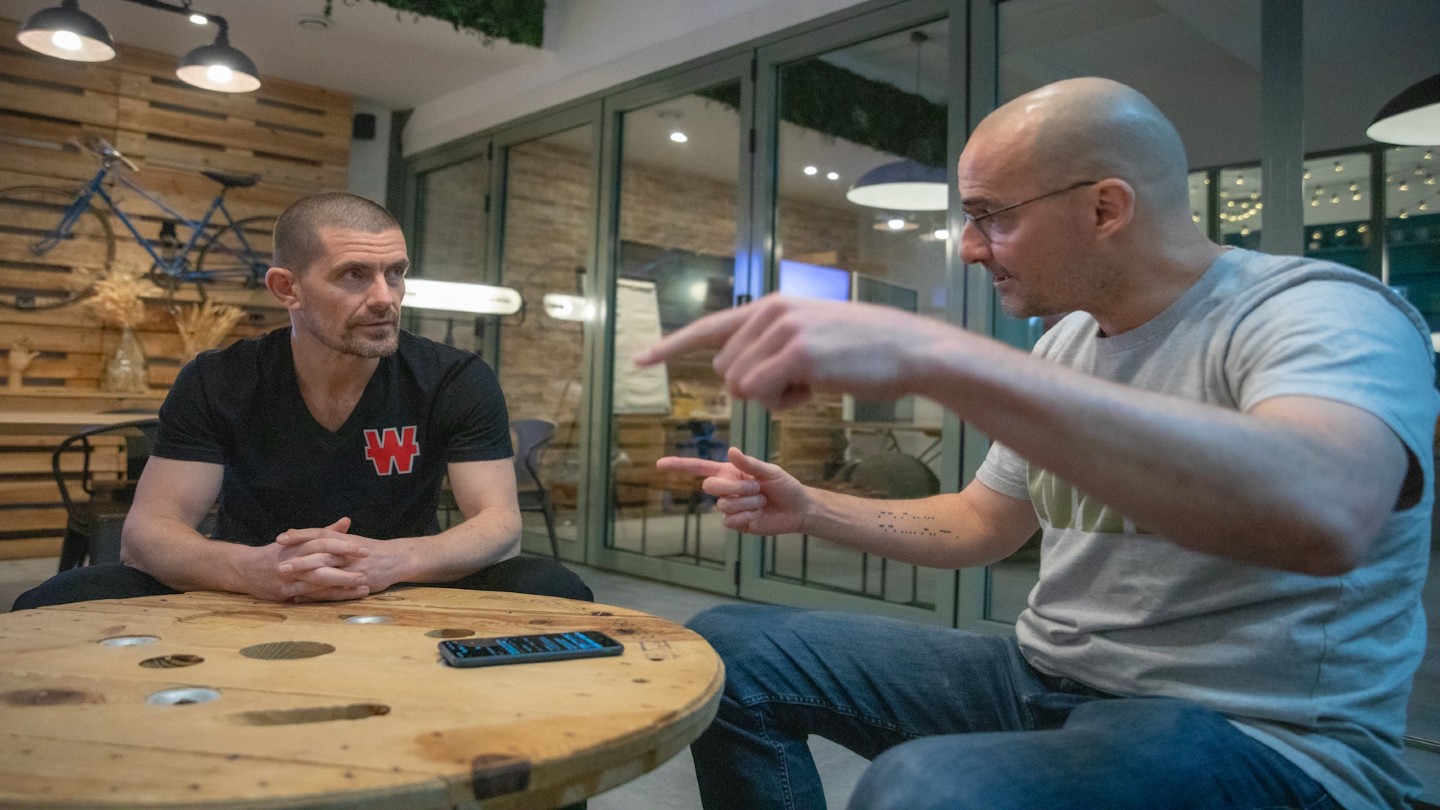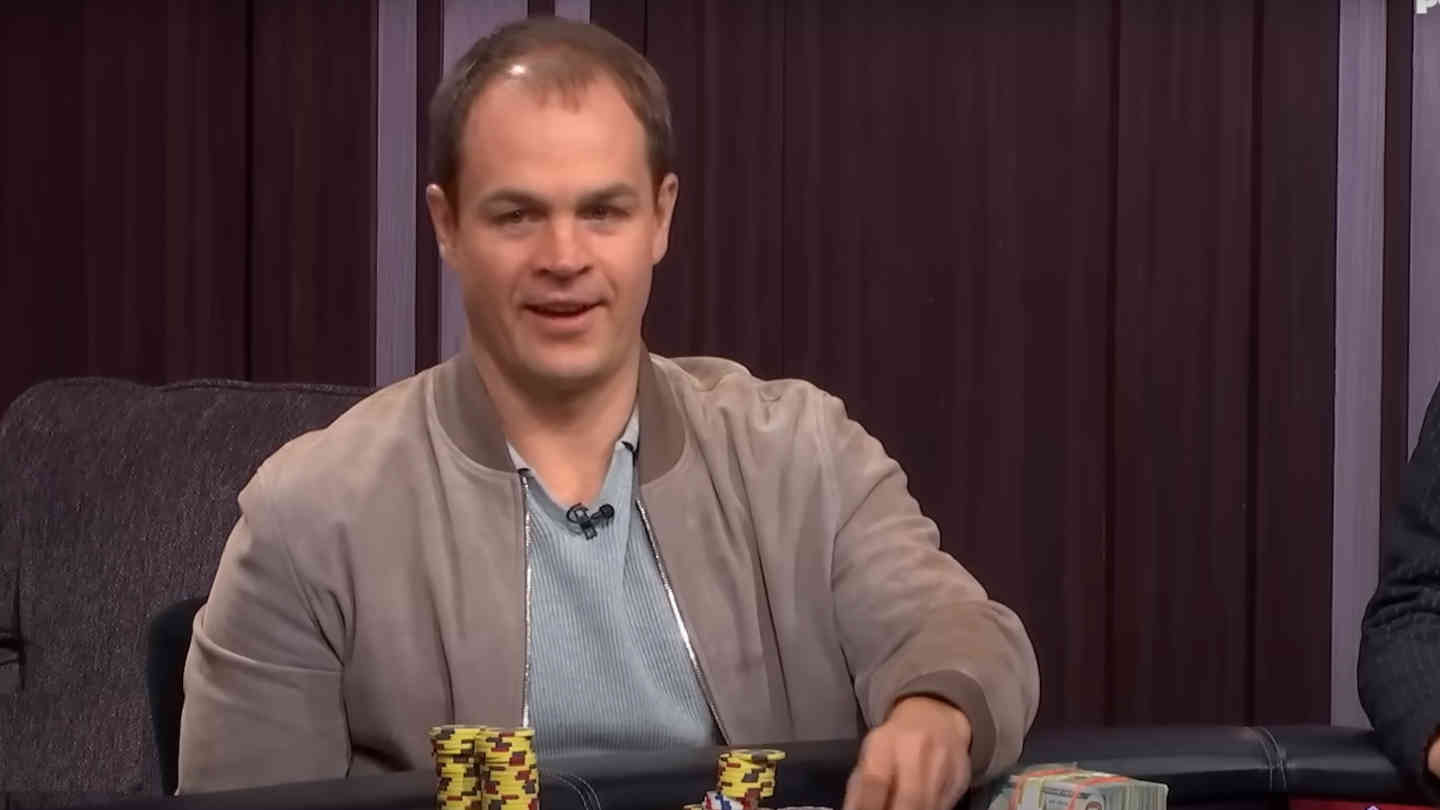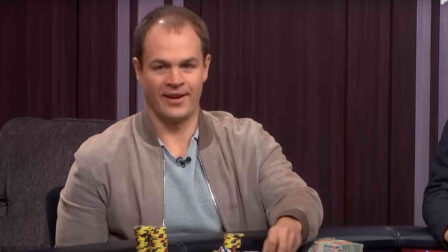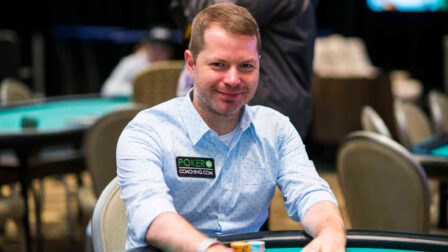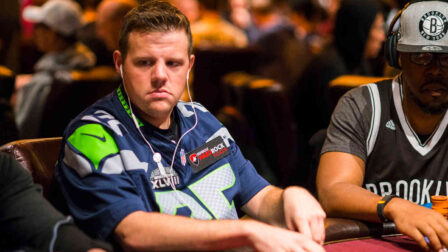Why Technical Strategy Is Not Enough to Succeed at Poker

7 minutes
Last Updated: August 21, 2023
Imagine that you were able to magically download a solver’s strategy for the entire poker gametree into your head. You’d know all the Game Theory Optimal ranges to play, the proper bet sizing for each street, and the right calling and bluffing frequencies.
In this hypothetical, let’s also assume that you invested minimal time into bankroll management, mental game preparation, game selection, and observing your opponents. In other words, you’d have the technical knowledge of an expert with the poker intangibles of a novice.
Would you be able to be successful long-term? Can you see some potential pitfalls?
The irony is that with all the GTO discourse in the poker community about being balanced, many have become unbalanced by neglecting critical intangibles with too much focus on technical strategy.
The cost of this is often wasted potential: A talented player with the knowledge to succeed fails to stand the test of time because of mismanagement of money, poor game selection, or a lack of time spent on mental game preparation.
Let’s examine the top three problems of over-emphasizing technical strategy in more detail.
3) Perfect Theoretical Knowledge Must Account for Real-Life Environments
If an alien with perfect theoretical knowledge was dropped from Mars into a typical live poker game, they’d come across so many situations that simply aren’t by the book.
Live poker includes hands where four players limp to the open raiser and other hands where someone raises and five people flat call. There may even be a 3-bet with two cold-callers.
These spots just don’t come up in poker books because typically, if more than two people are seeing a flop, someone has already played sub-optimally preflop. So right out of the gate, many spots in live poker are in new territory where poker theory is harder to apply.
Even in heads-up situations, having perfect theoretical knowledge does not mean one will have a simple decision.
For example, a solver may determine that a specific hand folds the river 35% of the time and calls 65% of the time. The expected values are roughly the same so the solver is somewhat indifferent about which option is best.
In real life, the two decisions are not equal and judgment calls are needed to decide on the best play.
Without paying attention to opponent tendencies, the perfect theoretical player would resort to randomizing rather than using valuable information that is already at his disposal.
Solver knowledge can lead a horse to the water, but individual discretion and presence of mind is needed before it can drink.
In addition, a player might make more money with an exploitative approach in many spots. For example, this player when faced with a 3-bet might know to 4-bet with a combination of premium poker hands and bluffs.

But if the 3-bet was coming from a player that only was 3-betting pocket kings and aces, this theoretical strategy will backfire quickly. The same can be said about having balanced bluffing frequencies against calling stations who will not fold bottom pair on the river.
There are many times in live poker where theoretical knowledge in a vacuum can lead to major errors. The players that will make the most money will always be those that know the theory but also know population tendencies well and can deviate quickly to develop exploitative strategies.
Game-selecting properly will enable them to do this consistently, but our hypothetical theory-based player is not thinking in these terms.
2) Tilt Can Interfere with the Execution of Technical Strategy
Even if a player somehow knew what to do in every spot in poker, a shaky mental game can still lead to veering off course.
Most players know by now that it’s not profitable to call raises in middle position with hands like A9o or limp-call hands like 36s. Intellectually, they are well-aware they should not be doing this, so why do they still make these plays?
There can be a wide range of reasons for this, but they almost always fall under mental game leaks.
Some players play looser when losing because they are trying to get back to even. Others do not have the patience to wait through periods of being card dead and they play these hands to deal with the boredom.
And then there is attachment: After investing significant money into the pot with a hand like pocket aces, a bad river card may come that improves their opponent’s entire range. When faced with a big bet, they may know that the right play is to fold.
But in a big moment like this where emotions are intense, they may not be able to access their theoretical knowledge.
Similarly, a player may know he holds a terrific bluff-catcher against an overly aggressive opponent, but when faced with a bet for his entire stack, lizard-brain takes over and the fear short-circuits any helpful strategy knowledge.
Ultimately, it is one thing to know the right play when the pressure is off and no ego is involved. It is quite another matter to execute it in the heat of the moment, especially when a difficult session may have created some tilt.

How many times has a player said, “I knew you had it” after calling a big bet or “I knew you were bluffing” after making an incorrect fold.
If the player truly knew, they would have made the right play. It is not enough to know what to do: Players must also have strong enough mindsets and sufficient discipline to follow through.
This requires time spent on their mental games away from the table so that technical knowledge can actually be accessed in the most important moments.
1) If a Solver Doesn’t Practice Proper Bankroll Management, It Will Still Go Broke
If a poker player hypothetically had perfect theoretical knowledge, overconfidence could still become a significant danger.
Imagine this player decided that he was ready for the world’s largest cash games because of his superior knowledge, but he was not properly bankrolled for them.
The luck factor involved in poker can mean that even with excellent play, there can still be a decent amount of short-term losing.
In fact, if this player was routinely putting 20% of his bankroll on the line to buy into these games, he’d be almost guaranteed to go broke eventually due to the nature of poker variance.
After all, five buy-in downswings are just short-term, statistical noise in poker. They are inevitable even for players making solver-approved plays on every street.
By putting an unhealthy 20% at risk for each buy-in, our example player would be signing up to eventually go broke.
Time and time again, very talented players (who do not have perfect theoretical knowledge) go on a heater and decide it is time to move up in stakes before they are ready.
Sometimes they move up multiple stakes in a short period of time before their bankrolls have had a chance to become sufficient.
When coolers, suck-outs, and other unavoidable events happen, these players are at significant risk if they are under-rolled for their new games.
It cannot be stressed enough how much arrogance and ego can derail the poker careers of even the most talented players.

Do not try to be like Mike (McDermott) in Rounders and put your entire $30,000 bankroll on the line in one night. It just takes one aces-full cooler to cause you to go bust.
And by the way, a solver with perfect theoretical knowledge would have called at 100% frequency in Mike’s famous opening-scene hand against Teddy KGB. Let that be a cautionary tale to never underestimate the importance of bankroll management, even for poker prodigies.
All the technical strategy knowledge in the world is not enough to overcome poor money management habits.
Serious Poker Players Should Rebalance Their Time
Similar to how investment portfolios require rebalancing periodically between stocks and bonds, many serious poker players need to rebalance their study portfolios between technical strategy and poker intangibles.
Recognize that with all the poker strategy content that is available, players at mid-stakes and high-stakes games will usually have decent technical knowledge.
The separators will be who has the stronger mindset in these games, who manages their bankrolls better, and who can minimize the impact of tilt while losing.
Be sure to take a hard look at how you are spending your study time and make sure that you are investing a sufficient amount into your bankroll management and mental game preparation.
This will ensure that your strategy knowledge won’t go to waste and can ultimately combine with these softer skills for long-term poker success.
If you are struggling with finding a successful balance between technical strategy and poker intangibles, Joel Wald offers high-quality private coaching and instructional videos through his PTO Poker training site.
If you have any questions, book a free 30-minute consultation with him to discuss how PTO Poker can help you achieve your poker goals! Book free consultation!






